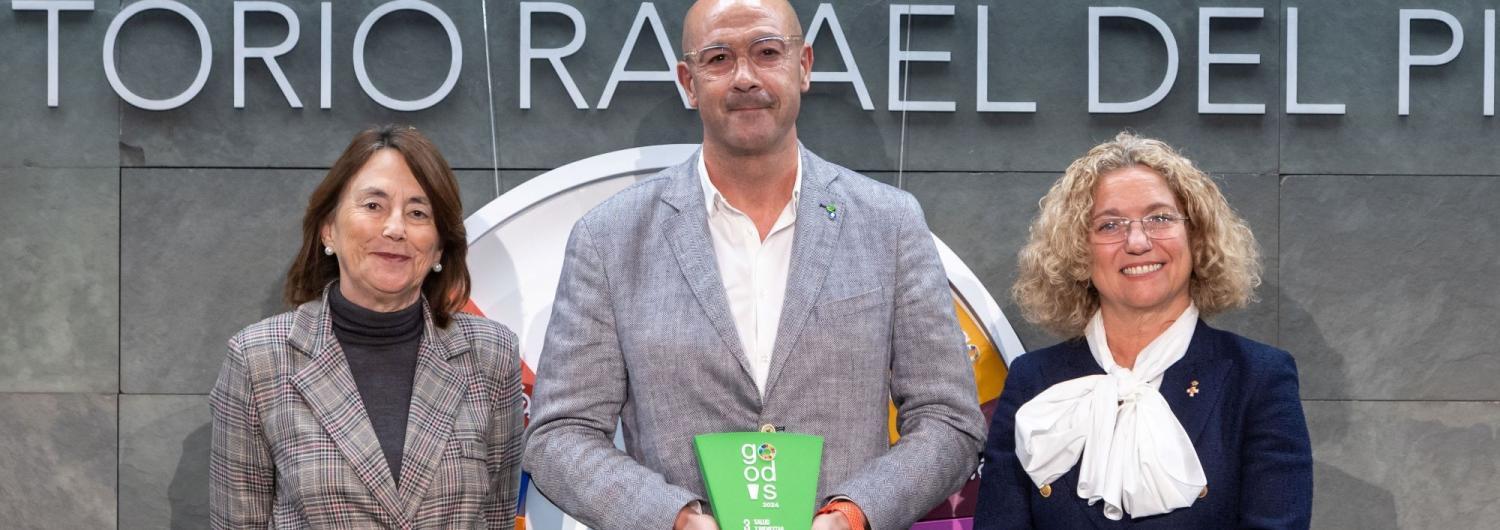

SAM Photo App by Action Against Hunger, winner of the go!ODS awards
SAM Photo Diagnosis App®, the mobile application developed by Action Against Hunger to detect severe acute malnutrition in children with a simple photo of their arm taken with a mobile phone, has obtained go!ODS recognition in the category corresponding to SDG 3, Health and Well-being.
The go!SDG awards are the benchmark sustainability awards with a focus on innovation in Spain, granted by the United Nations Global Compact and the Rafael del Pino Foundation. The different categories are based on the 17 Sustainable Development Goals (SDGs), and the organizers select three finalists for each goal.
A fundamental part of this SDG is to reduce mortality and guarantee a healthy life for everyone at any age and anywhere in the world, reducing the risk factors that increase mortality and the chances of contracting diseases and suffering accidents. Malnutrition is one of the most important risk factors, especially for children.
At Action Against Hunger, we believe that innovation should be a driver of change to improve people's lives. For this reason, our innovation work, especially with regard to the development of this tool, is fundamentally aligned with the objective of Health and Wellbeing.
“The go!SDG awards recognize sustainability with an innovative approach. And that's what SAM Photo is: a revolutionary nutritional diagnostic mobile application that can save lives: it is easy to use, empowers community health workers in hard-to-reach places and provides quality data for national health systems and decision makers”
Amador Gómez, DirectorR&I, Action Against Hunger Spain
SAM Photo uses morphometric analysis of the body to diagnose the nutritional status of children under five years of age with a single photo of their left arm, enabling rapid and reliable identification of malnutrition and facilitating rapid access to treatment. The SAM Photo Program allows for increased coverage of malnutrition identification, which translates into more children being treated. In addition, it involves and engages the communities themselves, simplifies information gathering by facilitating the digitization, aggregation and analysis of nutritional data, and assists local decision-makers in their decision-making processes.
In the words of Laura Medialdea, the program's principal investigator, “the trajectory that this project has taken so far is and should be a source of joy and pride for the entire team involved, here in Spain and also in Senegal, Guatemala and India. This recognition is a great encouragement to continue working on the development of this innovative tool that brings us one step closer to our vision of a world without hunger.”
